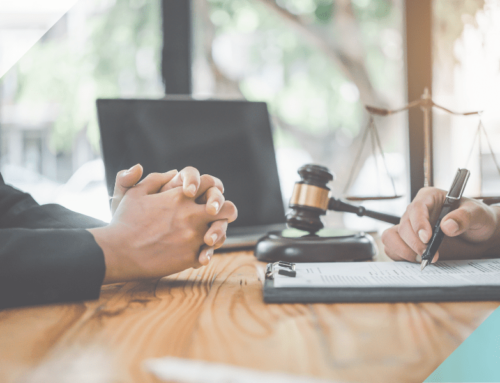The Supreme Court has found Morrisons supermarket liable after one of their employees attacked a customer. So what does this mean for other business owners? Here Lloyd Clarke looks at how employers can take steps to protect themselves from the actions of their staff.
Amjid Khan was working at a Morrisons petrol station in Birmingham in 2008 when he punched and kicked customer Ahmed Mohamud.
But while Khan was sacked following the incident and the supermarket offered to pay damages, the victim and his family decided to take the case further.
This week, after a roller coaster ride through the courts, Morrisons was found “vicariously liable” for Khan’s behaviour.
What does it mean?
Vicarious liability refers to a situation where someone is held responsible for the actions or omissions of another person.
In a workplace context, an employer can be liable for the acts of its employees, provided it can be shown that they took place in the course of their employment.
Many employers are unaware that they can be liable for a range of actions committed by staff and that these can include bullying and harassment, violent or discriminatory acts or even libel and breach of copyright.
The test case
Khan attacked Mr Mohamud after he asked staff to print some documents for him as a “favour”.
Court documents claimed Khan responded by being abusive and using a racial slur.
Mr Mohamud was not abusive in return, but the documents said Khan followed him to his car, shouted more abuse, punched him twice in the head then leapt on him and subjected him to a “brutal attack”.
He ignored attempts by his supervisor to stop the assault.
Mr Mohamud brought a claim against Morrisons on the basis of vicarious liability.
The County Court dismissed the claim, concluding that there was an insufficiently close connection between what Khan was employed to do and his actions against Mr Mohamud.
The Court of Appeal upheld the County Court decision. However, just this week the Supreme Court overturned the Court of Appeal decision, finding unanimously that Morrisons was liable for Khan’s actions.
Why?
Well the Supreme Court identified Khan’s job as attending to customers and responding to their enquiries.
It decided that his attack followed directly on from his interaction with a customer.
Lord Toulson, giving the lead judgement, did not consider that Khan “metaphorically took off his uniform” when he pursued Mr Mohamud out of the petrol station and attacked him.
What does this mean for business owners?
While the Supreme Court has not changed the law on vicarious liability this case serves as a warning to employers going forward.
So what practical steps can businesses take to avoid vicarious liability for the acts of their staff?
The most important thing that employers can do is to ensure that they have taken all reasonable steps to prevent such acts from occurring.
This could include:
- Maintaining an up-to-date equal opportunities policy
- Providing anti-discrimination training to staff
- Demonstrating an active commitment towards combating discriminatory practice in the workplace
- Ensuring that all relevant policies (discrimination, health and safety and data protection) are up to date and freely available at all times
- Including an “indemnity” clause in any contract of employment
How Can I Defend A Claim?
If you have taken all reasonable steps to educate, train and support your staff, you are in the best position to defend a claim for vicarious liability.
The main thrust of such a defence would be on the grounds that the employee carried out an “expressly prohibited act”.
If you would like advice on how to protect your business from the acts of its staff, or on how to defend a claim of vicarious liability, call us today.
If you need to speak to a legal professional about your situation, we offer a free initial no-obligation consultation. Call our Head of Employment Law and Partner of the firm, Lloyd Clarke, on 01206 239761, or email Lloyd.clarke@attwells.com. Alternatively, you can upload your settlement agreement for a free review using our Online Settlement Agreement Service.





